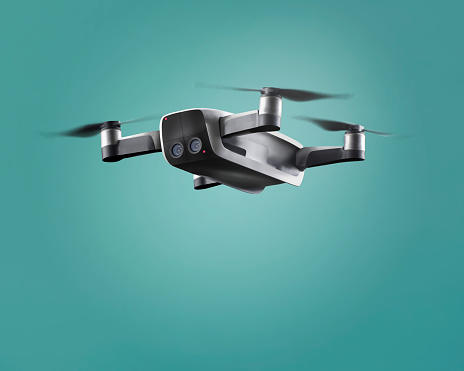Showing 6 results for:
health tech
Popular topics
All results

Editorial Note: Opinions and thoughts are the author’s own and not those of AFROTECH™. Companies and products are often designed with younger generations, like Gen Z and Millennials, in mind. However, this emphasis often causes the industry to overlook older generations who also need technology tailored to their needs. One would think this would be an obvious market, given that Gen X and Boomers hold more wealth than younger generations. That wealth alone makes them an attractive customer base because they can afford the products and services being developed. Even so, there hasn’t been much focus from tech investors or founders on creating solutions for this demographic. How often have you come across a founder or investor saying, “We’re building this for Gen X or Boomers”? Rarely, if ever. This is a massively overlooked opportunity. One reason for this lack of attention is that the tech industry is perpetually focused on the future. Rarely does it look to the past. When developing...

This piece originally published on April 5, 2019. From doctors who don’t believe Black women’s pain to higher rates of maternal mortality to the infamous Tuskegee experiment , anti-Blackness within the medical industry is well-documented. This history can make it difficult for Black people to receive — or even want to seek — healthcare. Seeing Black doctors is one way many patients feel both comfortable and heard, but finding them can be incredibly difficult. Kimberly Wilson founded HUED to make that process easier. HUED is a healthcare technology startup that Wilson describes as the “for us, by us” version of ZocDoc. Through Hued’s website or mobile app, patients can find and book appointments with Black and Latinx healthcare providers. Whether you’re looking for a doula, therapist, or doctor, Hued plans to be people’s one-stop shop. HUED matches patient’s needs based on insurance provider, region, and specialty. In addition, patients can also access reviews about specific...

The lack of communication between healthcare providers can be damaging. Physicians worldwide rarely communicate with other physicians who are outside of their practice or hospital. Instead, they solely depend on the patient’s verbal history. Medcera is changing this for the citizens of Africa. Medcera is a web-based EMR (electronic medical record) and EHR (electronic health record) system with a patient portal. By providing both EMR and EHR, it gives the physician a more well-rounded picture of the patient’s health. Essentially, it provides them with personal health records for patients. Under the leadership of Federal University of Technology and Johns Hopkins University alum, professor Ndubuisi Ekekwe — Medcera technology is exclusively serving the entire continent of Africa. Once a patient has a record with Medcera, every approved healthcare professional will have access to that record irrespective of time and location. This is a game-changer for physicians and patients alike,...

This story originally published on April 5, 2019 From doctors who don’t believe Black women’s pain to higher rates of maternal mortality to the infamous Tuskegee experiment , anti-Blackness within the medical industry is well-documented. This history can make it difficult for Black people to receive — or even want to seek — healthcare. Seeing Black doctors is one way many patients feel both comfortable and heard, but finding them can be incredibly difficult. Kimberly Wilson founded HUED to make that process easier. HUED is a healthcare technology startup that Wilson describes as the “for us, by us” version of ZocDoc. Through Hued’s website or mobile app, patients can find and book appointments with Black and Latinx healthcare providers. Whether you’re looking for a doula, therapist, or doctor, Hued plans to be people’s one-stop shop. HUED matches patient’s needs based on insurance provider, region, and specialty. In addition, patients can also access reviews about specific...

The city of Raleigh is launching a groundbreaking drone program that could change the way hospitals approach transporting supplies. Getting medical supplies from one location to another can be a time-consuming task for some hospitals — especially those in large metropolitan areas — and when you’re transporting materials like blood or organs, every second counts. Hospitals are now turning to tech to save time. Recently, UPS partnered with Matternet , a drone tech company, to deliver medical samples at WakeMed’s Raleigh campus using unmanned drones. WakeMed is a group of healthcare buildings, including hospitals, with facilities throughout the city. Both the Federal Aviation Administration and the North Carolina Department of Transportation provided oversight for the project, according to the press release. Not only is this an interesting application of drone technology, but it marks a historical moment. Bala Ganesh, vice president of UPS’ advanced technology group, said, according to...

Researchers at the University of California San Francisco have been working with machine-learning technologies to help detect and diagnose Alzheimer’s disease nearly six years early. According to an Alzheimer’s Association annual report , Alzheimer’s is the sixth leading cause of death in the United States. Older African-Americans are about twice as likely to have Alzheimer’s or other dementias as older whites. “One of the difficulties with Alzheimer’s disease is that by the time all the clinical symptoms manifest and we can make a definitive diagnosis, too many neurons have died, making it essentially irreversible,” Jae Ho Sohn, MD, MS, a resident in the Department of Radiology and Biomedical Imaging at UC San Francisco, said in a post. Sohn began using artificial intelligence with neuroimaging to predict the disease in patients who showed early signs of memory loss. PET scan images from the Alzheimer’s Disease Neuroimaging Initiative (ADNI), which included images from patients who...